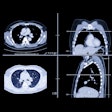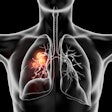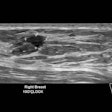
NEW YORK (Reuters Health), Nov 2 - Transient increases in prostate-specific antigen level (PSA bounce) after radiation therapy for prostate cancer are associated with a higher risk for biochemical failure, but not for clinical failure, according to a report in the October 1 issue of Cancer.
"Do not react quickly if a patient's PSA rises and conclude that their cancer has returned," Dr. Eric M. Horwitz from Fox Chase Cancer Center in Philadelphia told Reuters Health. "The PSA bounce is common for all patients treated with radiation and it does not represent treatment failure."
Dr. Horwitz and colleagues sought to determine the biochemical and clinical significance of the PSA bounce in a pooled analysis of 4,839 patients with prostate cancer treated by external-beam radiation therapy (EBRT) alone.
A posttreatment PSA bounce was noted in 978 (20%) patients.
At 10 years after treatment, 58% of patients with PSA bounce had no biochemical evidence of disease, the results indicate, compared with 72% of patients without PSA bounce.
This difference in biochemical failure did not, however, translate into differences in rates of distant failure, cause-specific survival, or overall survival, the researchers note.
"Immediate salvage treatment (specifically hormones) is not necessary until a recurrence has been definitively diagnosed," Dr. Horwitz concluded.
By Will Boggs, M.D.
Last Updated: 2006-11-01 15:11:22 -0400 (Reuters Health)
Cancer 2006;107:1496-1502.
Related Reading
PET/CT locates tumors within prostate but not outside, October 3, 2006
Copyright © 2006 Reuters Limited. All rights reserved. Republication or redistribution of Reuters content, including by framing or similar means, is expressly prohibited without the prior written consent of Reuters. Reuters shall not be liable for any errors or delays in the content, or for any actions taken in reliance thereon. Reuters and the Reuters sphere logo are registered trademarks and trademarks of the Reuters group of companies around the world.

















